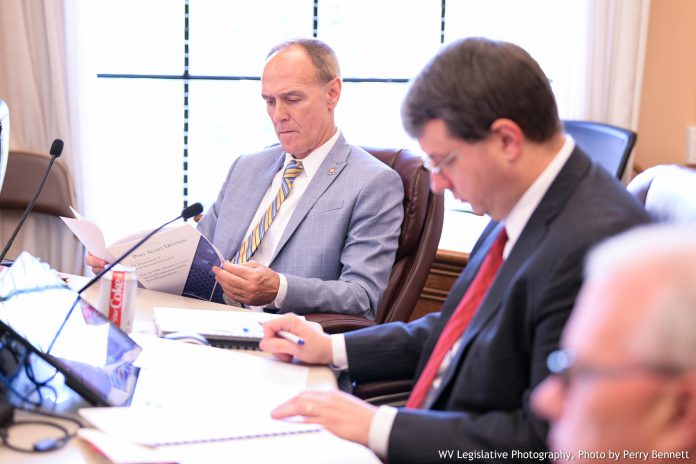In 2018, Child Protective Services met its required initial contact timeframe for abuse and neglect cases half of the time, a legislative audit report found.
In Tuesday’s Post Audits Subcommittee meeting, Melissa Bishop, assistant director of the Post Audit Division, explained some of the reasons for not meeting the statutory timeframe for face-to-face contact with an alleged child victim, were out of CPS staff’s control.
Some of these reasons included not being able to track down a family because of information was missing or incorrect, the family was not home when CPS workers visited, or the family refused to meet with CPS workers.
However, Bishop said the primary cause was high turnover and vacancy rates for those who respond to abuse and neglect cases.
CPS offices are divided into 28 districts in four regions. Turnover rates have slightly improved from 2017 to 2019. However, in Region 3 – which encompasses counties in the Eastern Panhandle and extends to Lewis and Braxton counties – turnover rates increased from 30% to 37%. Bishop said this turnover rate could be attributed to losing staff to higher paid positions across state lines.
When an employee leaves CPS, they participate in an exit survey. In those exit surveys, employees cited wages, caseloads and stress, as the top reasons they left. Bishop said the Bureau for Children and Families has added 48 new positions to reduce caseload, added two and five-year 5% pay increases, and added a $1,500 increase for those with the highest caseloads.
However, these efforts have not corrected the issue, Bishop said.
Compared to the five surrounding states, West Virginia differs on educational licensure requirements and has lower salaries. Bishop noted West Virginia’s starting salary is the second lowest in the region. Pennsylvania and Virginia have comparable salaries; however, licensure is not required.
Bishop said the amount of overtime worked by CPS workers continues to increase. It has increased 40% since 2015. She said there have been efforts to reduce overtime including the creation of a Crisis Team to deal with backlogs. However, due to the nature of CPS work, all overtime cannot be eliminated.
The report additionally found that CPS does not record intake calls and call case information is dependent on notes taken from the calls.
The audit also found CPS does not perform criminal background checks for workers after they have been hired. Bishop said the practice of completing criminal background checks happens for foster parents but not CPS workers.
The audit made several recommendations. These included developing processes to ensure required response times are met, for CPS to report back to the Post Audits Committee in six months, for the Bureau for Children and Families to update its retention plan, for the bureau to increase recruitment and retention strategies, to record intake calls and store in encrypted files for quality or training purposes, and to provide regular background checks for those who currently work for CPS.
DHHR associate general counsel Cammie Chapman, said the Bureau for Children and Families is working with federal partners on a program improvement plan, which the bureau hopes to have in place by the end of this year.
Chapman said the Committee for the Bureau of Children and Families recently updated its goals and is compiling data to determine potential recruiting and retention efforts, intending to collect data on successes and strategies.
She said the $31,000 starting salary is a significant increase from a few years ago, accounting 5% raises passed by the Legislature. Chapman said the goal is to create a career ladder to help with the recruiting and retention issues.
She said there are significant costs for ongoing storage for intake calls. For background checks, she said the bureau needs a more formalized license in personnel files and to make sure there is sufficient record keeping.
—
Brianna Walker, an auditor with the Post Audit Division, also addressed the Post Audits Subcommittee Tuesday afternoon. A legislative audit report found that the current process for state contractors does not address local taxes.
After a contract is signed, it is up to the contractor and sub-contractor to notify a municipality of work performed in that area. Walker said there is no oversight to make sure that is done.
The audit recommended all state spending units, including those exempt from purchasing, give formal written notice to municipalities of work done in an area, and to consider establishing surety bond requirements for contracts exceeding $1 million.

